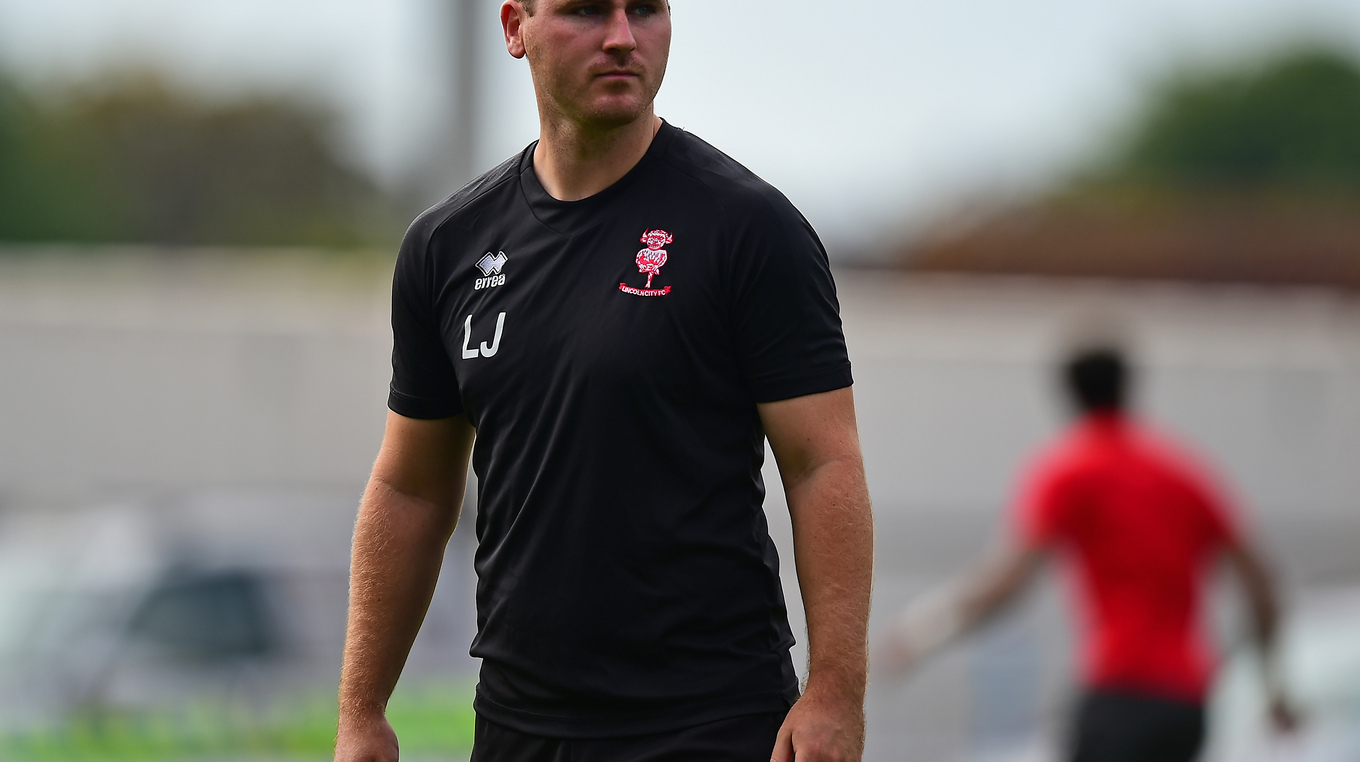Lead Sports Scientist Luke Jelly has been part of a backroom team that has secured the National League title, the Checkatrade Trophy, Emirates FA Cup Quarter-Final and a Sky Bet League Two play-off campaign.
Jelly arrived at Sincil Bank in June 2016 following a full-time internship at Peterborough United as a First Team Assistant Sport Scientist. Prior to his time at London Road, Jelly studied Sport and Exercise Science at the University of Bedfordshire for three years before going into a one-year masters in sport performance.
The Imps’ Lead Sports Scientist explained that placements were important during his time at University and they gave him a real insight into the industry: “During my time at University, I did a number of placements, I worked at Northampton Cricket Club, I also worked with elite level youth swimmers and at Peterborough United as a sports science intern. I would say that was where my career started.
“I think it is key that you go and find out if you want to work in that environment and ask yourself if it is the one for you. Working in varied sports you pick up good ideas but you also get to see where you want to work and what you want to specialise in.
“Working with the swimmers I was gym based working on conditioning. Whereas at Peterborough it was all pitch based, we all love football don’t we so that was when I decided football was the route for me.”
Since his arrival at Sincil Bank, the University of Bedfordshire graduate has seen a massive increase in the technology used throughout sports science.
Speaking about this, Jelly explains how his team collect data from every player in their day to day life: “When I started here we didn’t have anything, we literally just had my laptop where we would collect data such as daily load and ask the players how they found sessions.
“Now we have progressed with that to look at objective scores such as how hard a player ran in a session, how their heart rate changed during drills and what their distance has been for the week and in games.
“It has come on massively, we even monitor players every day as we will get them to fill out a wellbeing form, even on their days off so we can track sleep hours, muscle soreness and even their mood.”
Jelly went on to discuss how Lincoln will make contact with new player’s parent or previous club to see where they are at in terms of fitness and what their injury history is.
“We try and get a profile for the player so we can show the manager what we want to get out of them.
“Mainly Mike will contact their former club and we will look at their resistance training history, injury history and where they currently are.
“The manager will want a specific requirement for each player, for example the more experienced players won’t get any better but the best thing we can do for them is to put them on the pitch.
“We will look at what’s the best way to get Jason Shackell and Michael Bostwick on to the pitch is in comparison to Bruno Andrade or Harry Anderson who we think we can improve physically in order to maximise performance.”
